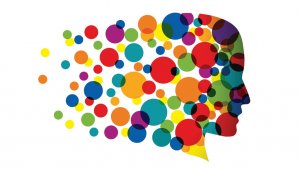There's more to fun than just avoiding work. In fact, evidence suggests that enjoying life through play helps us become more productive and generally better at what we do.
Teams Who Laugh And Play Are More Creative
There's more to fun than just avoiding work. In fact, evidence suggests that enjoying life through play helps us become more productive and generally better at what we do.

All work and no play makes Jack a dull boy; so the saying goes. Albert Einstein once said, “Play is the highest form of research” and on both counts, I couldn’t agree more.
It has become too easy for businesses to fall into the trap of believing that everything needs to be measured to induce efficiency. Not only does this tend to build stress in those being measured, it is a fundamentally flawed method of assessing success.
How do you measure creativity, energy, commitment, confidence or humour? Yet, these are the bedrock of any successful organisation and essential ingredients for setting a business, a team or an individual apart from the rest.
We are living in uncertain times due to the constant advancement of technology, that, coupled with the fear of getting things wrong, leads to everyone taking things far too seriously. The creative spark is snuffed out.
As Steve Hilton quotes in his new book More Human, “A world programmed to perfection is no longer a human world: without problems to solve and imperfection to inspire us, we would become complacent. We would lose our ability to innovate and be creative, but worse, our world would become sterile.”
"Play is all about newness and experimentation, and by playing we can access more of our creative genius"
Cambridge University is planning to hire a professor of Lego to research the introduction of play in education, development and learning. Play is recognised as a valuable tool for stimulating creative and innovative thinking.
Here are five very good reasons why a little play can go a long way.
Stress is bad
Stress costs the UK economy around £8.4 billion every year, according to the Chartered Institute of Personnel and Development. A continuously high level of stress wreaks havoc with our bodies and minds.
It impairs our immune systems (more lateness and absenteeism); our cognitive powers and problem solving skills (less able to perform even routine tasks) and generally induces a low mood (which is incredibly contagious in any team situation). It's no wonder the World Health Organization called stress "the health epidemic of the 21st century."
Fear of getting it wrong causes stagnation
The fear of getting things wrong keeps us small and trapped. If everything has to work, we will never do anything new. Risk is implicit in business and it’s what makes it interesting. If you never take a risk, your business will die. Our negativity bias is in-built.
The human brain has only evolved by 10 per cent in the past 50,000 years. Most of your brain is still very much living in the past. Ninety percent of you is hanging around the cave, fighting off perceived predators. We are on a mission to protect our share of the latest woolly mammoth brought back from the hunt. As Dan Gardner explains in his book The Science of Fear,
"When it comes to the evolution of psychology, we should imagine the development of the human brain by equating the past 2 million years of human development to a 201-page book.
"Of that book, 200 pages would cover the entire time our species spent being nomadic hunter-gatherers in the Stone Age. The last page would cover our time as an agrarian society. The last paragraphs on the final page would cover the last two centuries of the world we now live in. We are cavemen."
With practice we can control the caveman and by taking lots of little risks every day in the form of playful experiments; we will find ourselves moving away from pacing the perimeter of the cave and spending more time in the hammock.
Messing with the rules regularly, we get better and better at learning from those experiments. If we just save experimenting for special occasions, we are not going to change our thought patterns.
Laugh and the world laughs with you
We spend 99,117 hours of our lifetime at work yet only 6 minutes a day laughing. A study of over 2500 employees found that 93% believed that laughter helped them reduce their stress levels. Laughing increases oxygen intake to all of our organs including our brain; releases endorphins (a chemical 10 times more powerful than morphine) and boosts our immunity.
Furthermore, sharing laughter with our co-workers fosters empathy, compassion and trust. People who have fun on the job are more creative, better decision makers and more adept in social interactions. In addition, happy employees are more loyal and keen to get into work each day. In short, a little playfulness, fun and laughter can have a significant impact upon productivity.
Play to unleash your inner creative genius
Richard Branson once said, “More than any other element, fun is the secret of Virgin’s success.” Play is all about newness and experimentation, and by playing we can access more of our creative genius. It relaxes and stimulates; fuels our imagination and problem solving ability and makes us feel better about ourselves and engage better with other people.
By being more playful we create more energy, which attracts people to its source. We want to be attractive in business so that we make our co-workers want to help us and share their talent and ideas. This makes us freer to do amazing work as we have increased our resources just by being more fun.
The ROI of happiness
Analysis by the Harvard Business Review of hundreds of studies concluded that companies with happy employees enjoyed 30% greater productivity, 37% higher sales and a more creative culture than their dissatisfied counterparts.
According to Google spokesperson, Jordan Newman, the overriding corporate philosophy is “to create the happiest, most productive workplace in the world.” They play a lot at Google and since they are number three on Forbes list (May 2015) of the world’s most valuable brands and consistently voted America’s no 1 best employer, they are definitely playing the right game.
Play more and reap the productivity rewards.
Jim Lusty is a partner at creative leadership consultancy Upping Your Elvis.
Thanks for signing up to Minutehack alerts.
Brilliant editorials heading your way soon.
Okay, Thanks!



